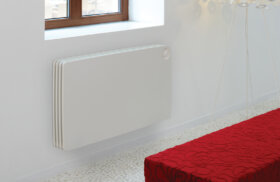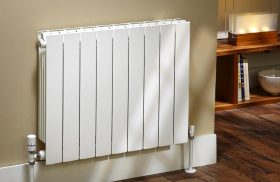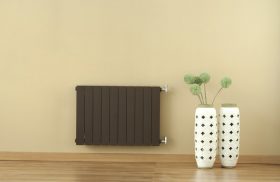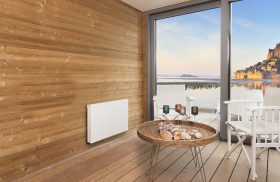Does Turning Off Radiators Save Money?
We’re all worried about the rise in our heating bills, which shows no sign of slowing down. In fact, from October they’re expected to rise again when the energy cap limit is raised to £3,238. As you’d expect, many householders are worried about the impact of these price rises and are looking for ways of reducing heating bills.
If you have rooms in the house which you rarely use, it makes sense to turn the radiators off and close the doors when you don’t need the room. There’s probably only one disadvantage in doing so, which is the damp problem.
North-facing rooms are particularly at risk of dampness, and there’s no point in trying to save money by turning the radiator off if you end up having to pay to get rid of the dampness.
The best thing to do is to remember to turn on the heat intermittently to prevent the room from smelling fusty. Also remember to air the room from time to time.
If you have a frost setting on the radiator valve (usually a snowflake symbol), it’ll be a good idea to keep the electric radiator or its designer radiator counterpart on that setting rather than being turned off completely.
That way, if there’s an unexpected frost in the night, the radiator will come on just high enough to prevent your pipes from freezing.
Advantages of Turning Off Radiators
As long as you close the doors so the cold air doesn’t seep into the rest of the house, you will save money by turning off the radiators in unused rooms.
By doing so, you’ll prevent the water in the system from running through that particular radiator. Your boiler uses up the same amount of energy however many radiators it has to heat, but by turning some of them off, your boiler will work more efficiently, meaning the rest of the house will warm up sooner so the boiler switches off sooner, and you’ll save money because you’re using less gas.
Disadvantages of Turning Off Radiators
There’s probably only one situation where turning the radiator off in a room you don’t use could result in a disadvantage, and that is when there is a problem with dampness.
North-facing rooms are particularly at risk of dampness, so there’s no point in trying to save money by turning the radiator off if you end up having to pay to get rid of the dampness.
The best thing to do is to remember to turn on the heat intermittently to prevent the room from smelling fusty. Also remember to air the room from time to time.
If you have a frost setting on the radiator valve (usually a snowflake symbol), it’ll be a good idea to keep your radiators on that setting rather than turned off completely. That way, if there’s an unexpected frost in the night, the radiator will come on just high enough to prevent your pipes from freezing.
When it’s really cold
When the weather turns really cold, many people think you should leave the heating on low all day in order to save money on your bills, but according to the Energy Saving Trust, this is a myth. They say that whenever your heating is on, you lose a proportion of it through the walls and windows (how much depends on how well-insulated your house is), so the more heat you use, the more heat you lose.
Their advice is to set the time for your heating to come on a little earlier than normal to ensure your house is nice and warm when you get home.
When you’re working at home
If you work from home, you’ll generally spend most of your time in the room you use as your office. It therefore makes sense that, in order to save on heating costs, it would be advantageous to turn off the radiators in all the other rooms.
The most practical solution would be to install an electric radiator in your office that isn’t connected to the central heating system. Designer electric radiators have a timer control and can also be linked to your smart home system. This allows you to only heat one room during the day, and only when you’re using it.
In the evening, when the central heating warms the rest of the house, you can switch off your office radiator and save money by not wasting energy.
Our wide range of designer radiators is efficient and controllable, and they will keep you warm and cosy throughout even the coldest winters. We also have a range of energy-efficient radiators.
In addition, most of our radiators are compatible with heat pumps if you are thinking of dispensing with your boiler altogether. Visit your nearest radiator showroom or contact us to discuss how you can keep your home warm at the same time as being as fuel efficient as possible.
If you would like to see our selection of radiators, contact us to make an appointment to visit one of our radiator showrooms.
St Albans | Brighton | Islington | Clapham | Leamington Spa | Bristol





